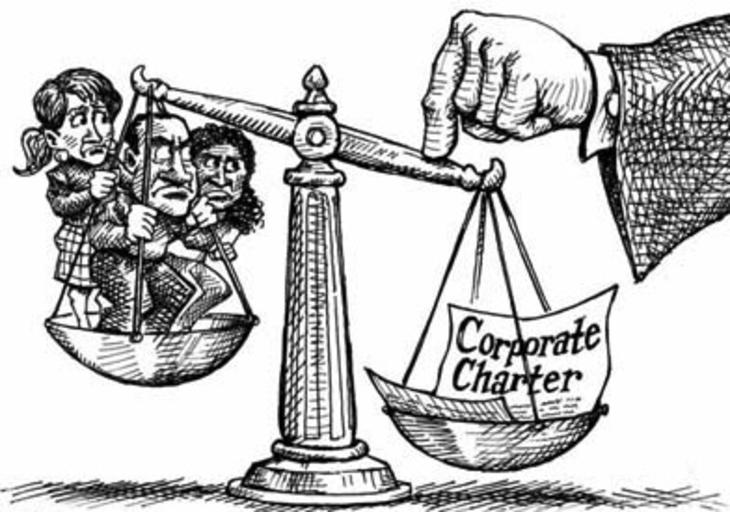RCEP: Corporations could sue governments

AFTINET | 3 May 2017
RCEP: Corporations could sue governments
Like the TPP, the RCEP could contain rights for foreign corporations to bypass national courts and sue governments in unfair international tribunals. This system is called investor-state dispute settlement (ISDS).
Undermining our democracy
ISDS is increasingly being used by global corporations to challenge health, environment and other public interest laws.
Some examples of recent cases include:
Public health: The Philip Morris tobacco company tried to claim billions of dollars in compensation for Australia’s plain packaging law.
Medicines: The Swiss pharmaceutical giant Novartis has threatened to sue Colombia after it sought to lower the price of an expensive cancer drug.
Environment: The US Lone Pine mining company is suing Canada because the Québec government introduced environmental regulation of gas mining.
Workers’ rights: The French Veolia company is suing the Egyptian government over a local government contract dispute, claiming compensation for a rise in the minimum wage.
Public services: Mexican transport company ADO threatened Portugal with a €42 million ISDS case after it cancelled plans to privatise part of Lisbon’s public transport network.
Just the threat of an ISDS case alone can cause policymakers to delay or abandon legislation. This undermines our democracy.
Not a fair legal system
ISDS tribunals consist of investment lawyers who can continue to be practicing lawyers, with obvious conflicts of interest. Australia’s High Court Chief Justice and other legal experts have said that ISDS is not a fair legal system because it has no independent judges, no precedents and no appeals.
Safeguards won’t work
Unfair and undemocratic ISDS rules were one of the key reasons diverse civil society groups from around the world opposed the TPP.
Unfortunately, instead of recognising these legitimate community concerns and removing ISDS clauses, TPP negotiators put in place general “safeguards” for public interest laws. However, these were weak and would not have prevented corporations from bringing cases.
Public health campaigning resulted in a specific clause to exclude future tobacco regulation from ISDS cases, such as the Philip Morris case against our plain packaging law. This clear exclusion could prevent future cases on tobacco regulation, but highlights the fact that the general safeguards were ineffective. It is not clear whether a similar exclusion is being proposed in the RCEP.
[1]
Footnotes:
[1] Learn more
- The hidden cost of RCEP and corporate trade deals in Asia, Transnational Institute (TNI) and others, December 2016
- Colombia hit with ISDS cases on mining regulation and medicine, AFTINET, Dec 2016
- Canary in the Coalmine, Dr Kyla Tienhaara / GetUp, October 2016
- Secrets of a Global Supercourt, Buzzfeed, September 2016
- The dismissal of plain cigarette packaging case good news for taxpayers, Dr Kyla Tienhaara, The Age, December 2015
- ISDS myth-busters, AFTINET, November 2015
Investor rights to sue governments pose real dangers, Dr Pat Ranald, The Conversation, April 2015 - Investor-State Dispute Settlement — A Cut Above the Courts? Australian High Court Chief Justice French, July 2014





